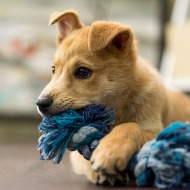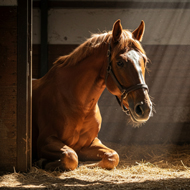
New laws around breeding and pet selling could come into force in 2021
Changes to the law regarding breeding of puppies, kittens and rabbits are currently under consideration by Scottish Parliament.
The new legislation will update existing laws around pet breeding and selling. It will require anyone breeding three or more litters of puppies or kittens or six litters of infant rabbits, in any 12-month period, to be licensed.
The regulations would also ensure that people sourcing five or more animals in any 12-month period for the purposes of rehoming them as pets will need a license. Additionally, license holders will need to demonstrate high standards of animal welfare.
The legislation will also introduce Lucy's Law, which came into force in England in April of this year. This law requires anyone wishing to buy a puppy or kitten to purchase directly from a licensed breeder or consider adopting from a licensed rehoming centre.
If approved by Scottish Parliament the legislation will come into force on 1 September 2021.
Natural environment minister Ben Macpherson said: “Ensuring the best standards of animal welfare is a hugely important issue. It’s also a priority for the majority of dog, cat and rabbit breeders in Scotland.
“Unfortunately, for a minority the breeding of animals to sell as pets is simply an easy way to make money, without appropriately considering animal welfare. That’s why we’re putting forward this legislation to deliver better welfare protection for animals.
He continued: “The new licensing regulations will give prospective pet owners greater confidence that they are sourcing a healthy and well-cared for animal from individuals or organisations that operate to high standards of animal welfare.
“If this legislation is approved then Scotland will become the first part of the UK to require licensing of cat and rabbit breeders, animal sanctuaries and rehoming activities.”



 Zoetis UK has called on horse owners to complete a short online survey about their horse's behaviours.
Zoetis UK has called on horse owners to complete a short online survey about their horse's behaviours.